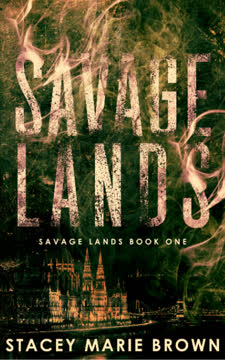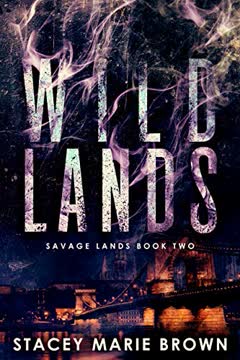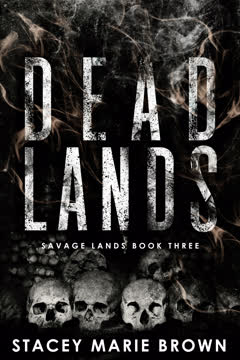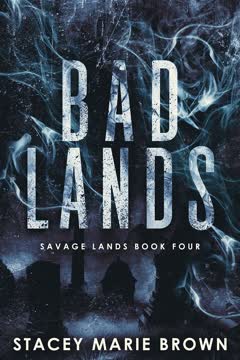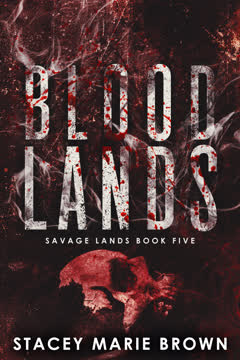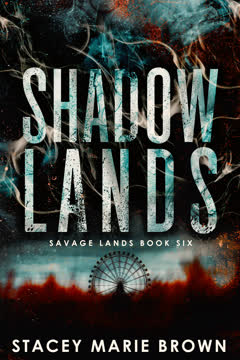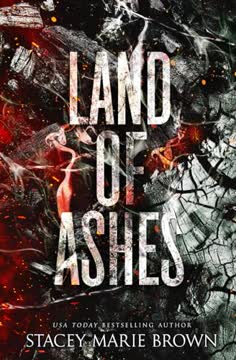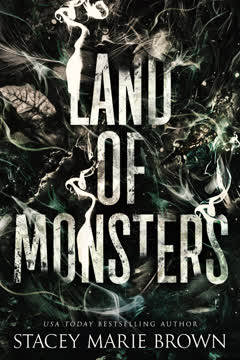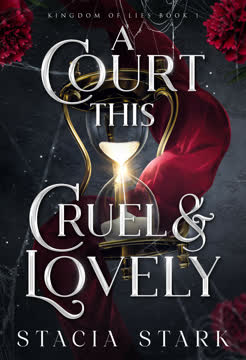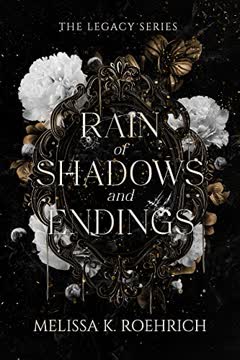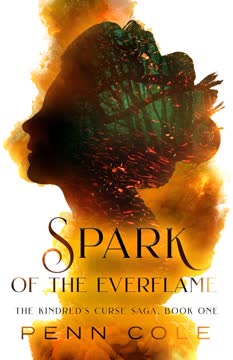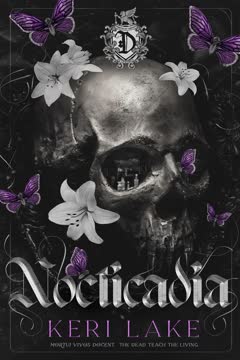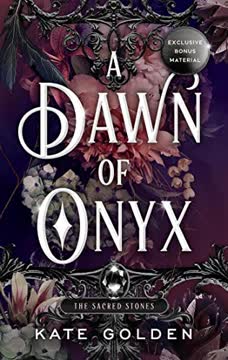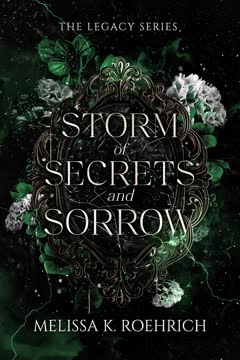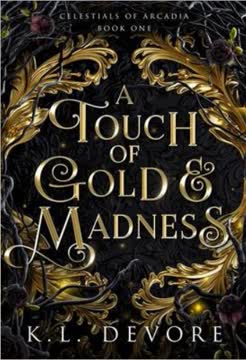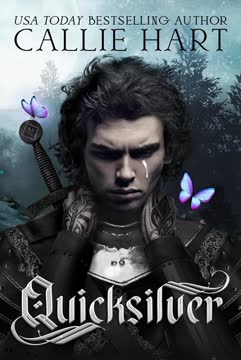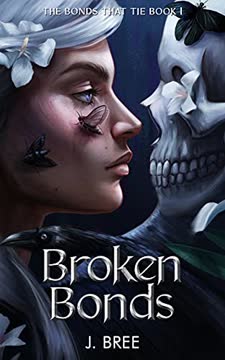Plot Summary
Shattered Borders, Shattered Lives
Brexley Kovacs lives in a Budapest split by a magical border: humans on one side, fae on the other. The city is a shadow of its former self, ruled by fear, poverty, and the iron grip of both fae and human authorities. Brexley, daughter of a fallen war hero, is a skilled fighter and thief, thriving on adrenaline and the thrill of rebellion. Her closest friend, Caden, is the son of the human general, and their bond is laced with unspoken longing and the weight of their families' expectations. The world they inhabit is one of constant tension, where every action is a risk, and every relationship is a potential betrayal.
Night Train, Double Cross
Brexley and Caden embark on a daring train heist, targeting fae cargo to redistribute wealth to the desperate. The thrill quickly turns to terror as they're discovered, forcing a desperate escape into the icy Danube. The failed mission leaves them empty-handed and exposed, their friendship strained by the close call and the secrets they keep. The city's divisions are mirrored in their own hearts, as Brexley's need for danger clashes with Caden's growing sense of duty. The night's events set in motion a chain of consequences that will shatter their lives and force them to confront the true cost of rebellion.
Walls, Wounds, and Whispers
Back within the fortified walls of Leopold, Brexley and Caden face the scrutiny of Caden's powerful father, General Markos. The palace is a gilded cage, filled with luxury but also with judgment, secrets, and the ever-present threat of political machinations. Brexley is haunted by her outsider status, her every move watched and weighed. The tension between her and Caden simmers, complicated by past mistakes and the looming reality that their time together is running out. The walls meant to protect them only serve to isolate, and the whispers of rebellion and betrayal grow louder.
Gilded Cages, Hidden Knives
A lavish gala becomes the stage for political maneuvering, as Brexley is paraded before foreign dignitaries and potential suitors. The event is a facade, hiding the true intentions of those in power. Brexley's beauty and strength are commodified, her future bartered for alliances. Caden's jealousy and Brexley's longing come to a head, but their moment is interrupted by the cold reality of their roles as pawns. The night ends with a devastating revelation: Brexley is to be married off to Sergiu, the cruel son of a rival leader, sealing her fate as a tool for political gain.
Pawned for Power
Brexley's world collapses as she's informed of her arranged marriage, her agency stripped away in the name of unity and power. Caden's protest is silenced, and Brexley is left to grapple with the betrayal of those she once called family. The palace's opulence becomes suffocating, and the future stretches before her as a prison. In a desperate bid for one last taste of freedom, Brexley convinces Caden to join her in a final act of rebellion—a heist that will change everything. Their bond is tested, and the lines between love, loyalty, and survival blur.
The Last Adventure
Brexley and Caden's last escapade is tinged with sorrow and urgency. They raid a heavily guarded train, uncovering a cache of mysterious, magical drugs destined to tip the balance of power. The heist is a disaster; they're discovered, and in the chaos, Brexley is shot and left for dead. Caden escapes, but Brexley's fate is sealed. Her last thoughts are of loss—not just of freedom, but of the love she never dared claim. The adventure that was meant to be a farewell becomes a crucible, forging her into something new and dangerous.
Blood on the Bridge
Miraculously surviving her wounds, Brexley awakens in fae custody, her body healed by magic but her spirit battered. She is transferred to the infamous Halalhaz—the House of Death—a prison from which no one returns. The journey is brutal, stripping her of dignity and hope. The fae guards are both cruel and indifferent, and Brexley quickly learns that her reputation as a fighter means nothing here. The bridge between worlds has become a bridge to hell, and Brexley must summon every ounce of strength to endure.
Death House Descent
Halalhaz is a nightmare made real: a labyrinthine, underground prison where violence, abuse, and despair reign. Brexley is dehumanized, beaten, and forced to fight for every scrap of food and dignity. She meets a cast of inmates—some allies, many enemies—and learns the brutal hierarchy that governs survival. The prison's true horror is revealed in the nightly "Games," gladiatorial battles where only the strongest or most ruthless survive. Brexley's skills are tested, and she is forced to confront the darkness within herself.
Labyrinth of the Lost
Brexley navigates the treacherous social order of Halalhaz, forging uneasy alliances with a demon named Kek, a wise old Druid, and a mischievous brownie. She is marked as an outsider, both for her human heritage and her connection to the powerful Markos family. The Games become her only means of survival, and each victory comes at a terrible cost. The prison's true master is revealed: Warwick Farkas, the Wolf, a legendary killer who rules through fear and strength. His attention is both a curse and a lifeline, drawing Brexley deeper into the prison's deadly politics.
Savage Games Begin
Brexley is thrust into the arena, forced to fight for her life against both fae and human opponents. The Games are a spectacle of violence, designed to entertain and control the prison's population. Each battle strips away another layer of her humanity, and the line between victim and monster blurs. Brexley's victories earn her respect and fear, but also make her a target. The Wolf watches her closely, his motives inscrutable. In the crucible of the Games, Brexley discovers a ferocity she never knew she possessed—and a darkness that threatens to consume her.
Monsters and Memories
As Brexley rises in the prison's hierarchy, she is forced to confront the ghosts of her past: the loss of her family, the betrayal of friends, and the choices that led her here. The Games become more brutal, and the alliances she forges are tested by jealousy, fear, and the ever-present threat of death. Warwick's interest in her deepens, and their encounters are charged with both danger and desire. Brexley must decide whether to trust him—or to become as ruthless as the monsters who surround her.
The Wolf's Domain
Warwick Farkas, the Wolf, is both Brexley's greatest threat and her most unlikely ally. Their relationship is a battle of wills, each testing the other's limits. Warwick is a legend, a killer who answers to no one, yet he is drawn to Brexley's strength and defiance. Their connection is electric, fraught with violence and longing. In the arena, they are adversaries; outside it, something more complicated grows. Brexley is forced to confront her own capacity for violence—and her hunger for something she cannot name.
Survival's Cruel Price
Brexley's survival in Halalhaz comes at a steep cost. She is forced to kill friends and enemies alike, each death carving away at her soul. The Games escalate, and the prison's politics become more dangerous. Betrayals abound, and Brexley learns that trust is a luxury she can no longer afford. The Wolf's protection is both a blessing and a curse, isolating her from potential allies and making her a target for those who would challenge his rule. In the end, survival means embracing the darkness within—and accepting that she is no longer the girl she once was.
Betrayal in the Blood
A fragile alliance with Warwick is tested when Brexley discovers the true extent of his secrets. He is not just a prisoner, but a spy, working for the fae leader Killian in exchange for his own freedom. The revelation is a devastating blow, shattering the fragile trust that had grown between them. Brexley is handed over to Killian, her fate once again out of her hands. The betrayal cuts deeper than any wound, and Brexley is left alone, her heart hardened and her resolve steeled.
Feral Hearts Collide
Brexley and Warwick's relationship reaches a fever pitch, their mutual attraction igniting in the midst of chaos. Their encounters are a blend of violence and passion, each pushing the other to the brink. The boundaries between love and hate, predator and prey, blur until they are indistinguishable. In the crucible of the Savage Lands, Brexley discovers a new kind of strength—a feral, untamable will to survive and to claim her own destiny, no matter the cost.
Escape and Entanglement
A daring escape from Halalhaz, aided by unlikely allies, thrusts Brexley and Warwick into the lawless chaos of the Savage Lands. The outside world is no less dangerous than the prison, filled with gangs, bounty hunters, and the ever-present threat of betrayal. Brexley's longing for home is complicated by the realization that there is no true sanctuary—only shifting dangers and new enemies. Warwick's motives remain a mystery, and their partnership is fraught with tension and unresolved desire.
The Savage Lands Unveiled
The Savage Lands are a study in contrasts: vibrant and decayed, lawless and teeming with life. Brexley navigates a world of vice and violence, where survival depends on cunning and strength. She encounters new allies and adversaries, each with their own agendas. The city's underbelly is a mirror of the prison she left behind, and Brexley must decide who she can trust—and who she must become to survive. The line between monster and victim grows ever thinner.
Home Is a Mirage
Brexley's desperate attempt to return home is thwarted by the realization that she is now a hunted fugitive, with a bounty on her head and enemies on every side. The walls of Leopold, once a symbol of safety, are now a barrier she cannot cross. The people she once called family are out of reach, and the world she knew is gone. In the Savage Lands, Brexley is forced to confront the truth: there is no going back, only forward into the unknown.
The Price of Freedom
Brexley's escape is revealed to be part of a larger scheme, orchestrated by Warwick in exchange for his own freedom. The betrayal is a final, devastating blow, shattering any remaining illusions of safety or trust. Brexley is handed over to Killian, her fate once again in the hands of those who see her as nothing more than a pawn. The cost of freedom is revealed to be higher than she ever imagined, and Brexley is left to pick up the pieces of her shattered self.
The Monster You Become
Alone and betrayed, Brexley embraces the darkness that has been growing within her. The girl who entered Halalhaz is gone, replaced by a survivor forged in violence and loss. The promise of vengeance burns in her heart, and she vows to become the monster her enemies fear. The story ends with Brexley's transformation complete: no longer a pawn, but a player in her own right, ready to take on the world that tried to break her.
Characters
Brexley Kovacs
Brexley is the daughter of a fallen war hero, raised in privilege but marked by loss and outsider status. Her psychological complexity is rooted in her need for control, her hunger for adrenaline, and her deep-seated fear of abandonment. She is both a rebel and a protector, driven by loyalty to those she loves but haunted by the knowledge that she is expendable to those in power. Her journey is one of transformation: from privileged pawn to hardened survivor, from girl to monster. Her relationships—with Caden, with Warwick, with her found family in prison—are fraught with longing, betrayal, and the desperate need to belong. Brexley's greatest strength is her refusal to break, even as the world tries to shatter her.
Warwick Farkas (The Wolf)
Warwick is a myth made flesh: a half-human, half-fae killer who rules Halalhaz through fear and strength. His psychological landscape is a battlefield of violence, guilt, and longing. He is both protector and predator, drawn to Brexley's defiance and haunted by his own past. Warwick's motives are inscrutable, his loyalty shifting between self-preservation and a reluctant connection to Brexley. His capacity for violence is matched only by his capacity for desire, and his relationship with Brexley is a dance of dominance, vulnerability, and mutual destruction. Warwick is a mirror for Brexley's own darkness, and together they embody the blurred line between monster and victim.
Caden Markos
Caden is Brexley's childhood friend and the son of the human general. He is a study in contrasts: disciplined yet passionate, loyal yet conflicted. His love for Brexley is complicated by his sense of duty and the expectations of his family. Caden's psychological struggle is one of identity—torn between the boy he was and the soldier he is expected to become. His inability to act on his feelings for Brexley is both a source of pain and a catalyst for her transformation. Caden represents the life Brexley longs for but can never reclaim.
General Istvan Markos
Istvan is the architect of Brexley's gilded cage, a man who wields power with cold precision. His psychological makeup is defined by ambition, pragmatism, and a willingness to sacrifice anything—including those he claims to love—for the greater good. He is both a father figure and a jailer, shaping Brexley into a weapon while denying her agency. Istvan's relationship with Brexley is transactional, his affection conditional on her usefulness. He embodies the moral ambiguity of leadership in a world at war.
Kek
Kek is a demon inmate in Halalhaz, marked by both power and isolation. Her psychological resilience is forged in the fires of violence and betrayal. She is both a protector and a provocateur, drawn to Brexley's strength and offering a rare friendship in a world of enemies. Kek's sexuality and confidence mask a deep vulnerability, and her loyalty is hard-won but fierce. She represents the possibility of connection and solidarity in a world designed to divide.
Tad (Tadhgan)
Tad is an ancient Druid, physically frail but spiritually formidable. His role is that of mentor and guide, offering Brexley wisdom and perspective in the chaos of Halalhaz. Tad's psychological depth is rooted in loss and endurance; he has seen civilizations rise and fall, and his cynicism is tempered by a stubborn hope. His relationship with Brexley is paternal, offering her the guidance and acceptance she never found in her own family.
Lynx
Lynx is a fae inmate whose silence masks a keen intelligence and deep empathy. She risks herself to help Brexley, defying the prison's brutal hierarchy. Lynx's psychological complexity lies in her ability to see past species and status, forging connections based on shared suffering. Her actions are driven by a quiet courage, and her friendship is a lifeline for Brexley in her darkest moments.
Rosie
Rosie is a survivor, using wit, charm, and adaptability to carve out a life in the Savage Lands' underbelly. Her psychological resilience is matched by her empathy, offering Brexley kindness and support when she needs it most. Rosie's past is marked by loss and betrayal, but she refuses to be defined by her circumstances. She represents the possibility of dignity and friendship in a world that devalues both.
Killian
Killian is the enigmatic and ruthless ruler of the Budapest fae. His psychological profile is one of control, charisma, and cold calculation. He sees people as pieces on a chessboard, and his interest in Brexley is both personal and political. Killian's relationship with Warwick is transactional, and his willingness to use Brexley as a bargaining chip reveals the depth of his ambition and the danger he poses.
Aron Horvát
Aron is a former friend and lover, whose arrogance and insecurity lead to his downfall. His psychological struggle is one of inadequacy and resentment, unable to reconcile his feelings for Brexley with his own failures. Aron's betrayal and death are a turning point for Brexley, forcing her to confront the cost of survival and the impossibility of returning to the past.
Plot Devices
Duality of Power and Powerlessness
The narrative structure of Savage Lands is built on the interplay between power and powerlessness. Brexley's journey is one of constant shifts: from privileged elite to powerless prisoner, from pawn to player. The story uses the physical walls of the city and the prison as metaphors for psychological barriers, exploring how trauma both confines and transforms. Foreshadowing is woven through Brexley's early acts of rebellion, hinting at the darkness she will embrace to survive. The Games serve as both literal and symbolic crucibles, forcing characters to confront their own capacity for violence and the thin line between monster and victim. The use of unreliable alliances, shifting loyalties, and betrayals keeps the reader—and Brexley—off balance, mirroring the chaos of the world she inhabits.
Analysis
Savage Lands is a brutal, unflinching exploration of survival, identity, and the corrosive effects of power in a world divided by magic and war. Stacey Marie Brown crafts a narrative that is both a dystopian fantasy and a psychological study of trauma, resilience, and transformation. The novel interrogates the ways in which systems of oppression—whether magical, political, or personal—shape and distort those trapped within them. Brexley's journey from privileged pawn to hardened survivor is a meditation on the cost of agency: to claim power in a world designed to break you, you must become something new, something dangerous. The story refuses easy answers, instead embracing the complexity of desire, loyalty, and the monstrousness that survival can demand. In a modern context, Savage Lands resonates as a parable of resistance and adaptation, challenging readers to consider what they would sacrifice—and who they would become—when the world turns savage.
Last updated:
Review Summary
Savage Lands receives mixed reviews, with ratings ranging from 1 to 5 stars. Positive reviews praise the addictive storyline, world-building, and sexual tension between characters. Critics cite issues with repetitive writing, underdeveloped characters, and questionable plot points. Many readers find the prison setting and dystopian elements intriguing. The slow-burn romance and cliffhanger ending are polarizing aspects. Some reviewers compare it favorably to other popular fantasy series, while others find it derivative. Overall, the book seems to appeal to fans of dark fantasy and enemies-to-lovers tropes.
